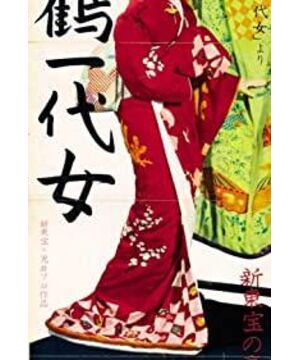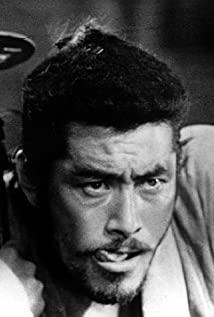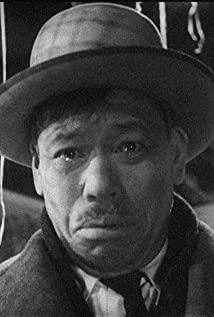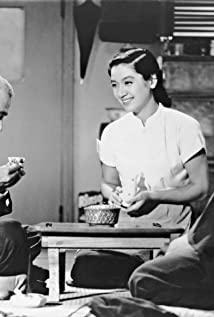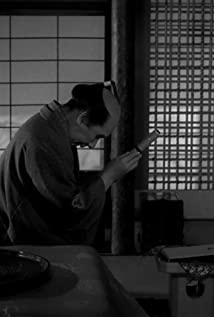It should be a good movie that can be mentioned over and over again, and they will be concretized into different ideologies in the eyes of different people. For good standards, everyone has a different evaluation system. But there is no doubt that people tend to make highly directional evaluations under the guidance of authority, such as the recent book recommendation list of the Chinese University of Hong Kong. This cannot be said to be good or bad, because things that have been tested by time and a stronger brain have long-standing reasons. But there are also times when facing one-sided evaluations, opinions, and facing one's true thoughts, there will always be doubts: Is it really that good? Is it really that bad?
Liang Wendao said in One Thousand and One Nights: After listening to the story, we always ask to explain what the lesson of this story is, but a really good story, everything is already included in it. This is true of novels, and so are movies. Recently, the discussion about women and bad habits caused by a celebrity’s wedding with bridesmaids has prevailed. Regardless of the true nature of the matter, today I will talk about the recent female movie "Nishikeri Generation Girl". As a Japanese female film master, Mizoguchi Kenji can always delicately present the life of ordinary women at the bottom.
The film is adapted from Ihara Nishizuru's "Laughter Generation Girl", which tells the tragic life of a woman, which can also be said to be the life of the despised Nishizuru. As a maid of the noble family, Nishizuru fell in love with the lower-class samurai. In Japan, where the class was clear at the time, of course it was not allowed. After being discovered, the male was executed and the female was expelled from the city with his parents. The extremely angry father scolded, Xihe said: Why is it sinful for a man and a woman to be together, just because two people love each other? Our origins are different, but what's wrong with our sincere love. The class difference in feudal society has always been the culprit of tragedy, but under the successful policy of fooling the people, people took it for granted, even more than two thousand years after Chen Sheng issued "The Prince and General Xiangning has a kind". Today, this kind of remnant still exists, not to mention the upright Japanese nation. Speaking of the same thing happening in China, it may not go to such an extreme. The cross-class love in ancient China basically evolved into a romantic affair. In the movie "Wedding Banquet", Li Ang described Chinese people getting married and making brides, saying that this was the result of thousands of years of sexual repression in China. So for Japan, is the phenomenon that AV is so developed now, is it the result of long-term sexual depression?
Later, Xihe was favored by Lord Songping as a reproductive tool, and then abandoned. After returning home to pay his father’s debt, his father sold him to the brothel. Because of her arrogant character, she was fired by the brothel. Of course, it was also because of her money. If the dung was taken by a client of counterfeit currency, this client was also very interesting. He just arrived at the brothel and said that he had worked hard for twenty years to save money to visit the flowery world. There is also a man in "The Scholars", Ding Yanzhi, who has worked so hard to test the characters for many years. After saving more than two or two silvers, he entered the brothel with his heart. He didn't even touch the girl's hand. He was ridiculed and ran away ashamed. Up.
Xihe, who was driven out, came to a merchant's house to work as a maid. He was bullied by the bald proprietress and the horny boss. After a little resistance, he would be driven away just around the corner.
Finally, Xihe also met someone who truly cherished her. Unfortunately, not long after she got married, her husband was robbed and beaten to death. What else can I do? The desperate Xihe went to the nun's nunnery, and the lustful boss came to entangle in the political trial process, and was scolded by the Virgin Mary-like Taoist: Why not me! Why! By this time, Xihe, who was in her fifties, became a prostitute in the street. It used to be noble, but now the old Zhuhuang still sells her hue, stumbles into a temple, sees those kind-looking Buddha statues, and thinks of the lover when he was young. All this is a nightmare to let the Buddha go. Xihe couldn't support it anymore.
On the sick bed, the mother found her. From the beginning to the end, the mother's love for Xihe was undoubtedly, but it was helpless: child, father loves you, he is good for you, and mother is powerless. The incompetence of this kind of love is even more hateful. As a woman, the mother probably also thinks that her daughter's actions are wrong, and everything that follows is also attributed to the arrangements of fate. Even now, many people, as passive passives, still regard these as force majeure in the face of "natural and man-made disasters" and voluntarily give up trying hard. In fact, the so-called hand of destiny is just an excuse to settle down. But for the people of Xihe’s era, resistance means a lot of life. Those who put their birthdays but find sins and suffer, after all, are a minority, and those who know how to resist are those who have the idea of transcending the shackles of the times. It exists in every era. For example, "Doctor Sansho" earlier. People always speak beautifully. For example, I, who is typing these words at the moment, are nothing more than just taking care of myself.
Closer to home, the later Xihe was found by the son of the lord, but was rejected due to an unbearable experience, so he had to look at his son from a distance. Those ministers who saw him hurriedly scolded: Really shameless, are you worthy of the dead lord, you are simply insulting our Songping family, you whore, how could you do such a business, you should have died a long time ago. These defenders open their mouths to be a bitch, and they want you to be like a jade. Of course, you can still die, how clean it is to die. In "Furong Town", Qin Shutian said to Yuyin, to live, to live like an animal. In any case, death is too easy.
It's not the last, the movie only left the back of Xihe who was chanting Buddhist scriptures begging from house to house. Of course, some were alms, some were rejected, so stubborn Mrs. Xihe was still alive despite her humbleness. This old woman who has all the misfortunes in one body will continue to live, what hope, whoever lives, but it is physically alive, but a step taken by her left foot and a step by her right heel.
Unfortunately, it is only a simple description of how to step into this misfortune step by step. There is nothing that can be done, and resistance will only lead to even more misfortune. Xihe already knows this well, and she has no strength anymore, but I don't know if she has regretted it. If it were me, to be honest, it would make her intestines blue.
What the movie wants to tell us, after watching it, I don’t think this is a problem anymore.
View more about The Life of Oharu reviews


